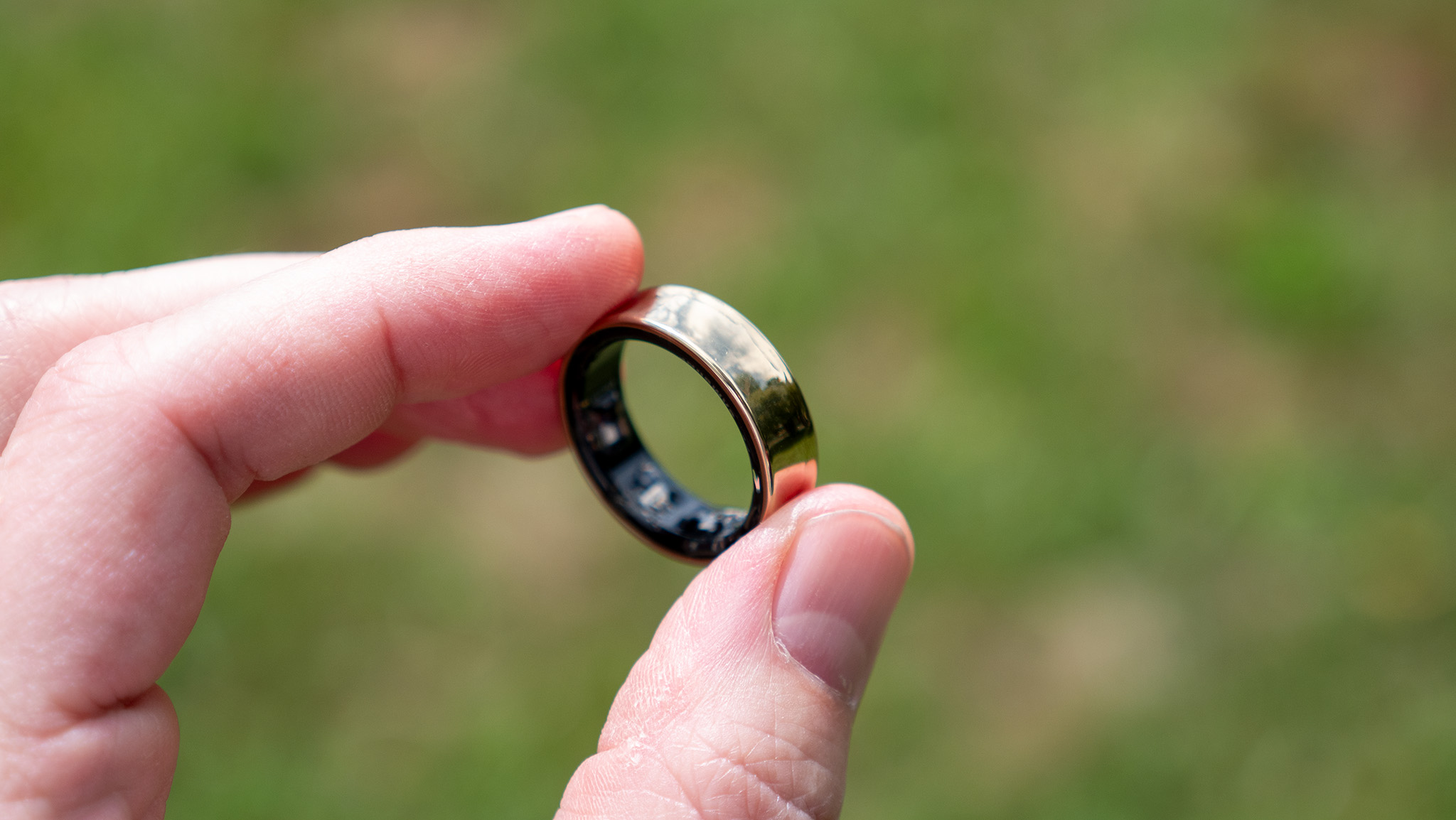
A Galaxy on your finger
The Galaxy Ring is a great starting point for Samsung, and the smart ring is available in a variety of sizes and colors. It is light and comfortable to use, and you barely even notice it. The battery life is better than the Ring Air, and you don't need a subscription to access all the features. That said, fitness and sleep monitoring are nowhere as good as the most basic smartwatches, the Ring is missing a boatload of features that are standard on its rivals, and the worst part is that gestures and select insights are limited to Galaxy phones.
For
- Light and comfortable
- Good battery life
- Samsung Health has good insights into your activity
- No subscription
Against
- Gestures limited to Samsung phones
- Not compatible with iOS
- Mediocre sleep monitoring
- No AFib detection
- Costlier than Ring Air
Everything you need
I used the Ring Air throughout 2024, and it has been terrific. The smart ring is so unobtrusive that I don't notice it most of the time, and it has titanium bands. The app has a ton of useful metrics, and it does automatic workout detection and a whole slate of cool extras. That said, fitness monitoring has been inconsistent in my usage, but that has gotten better with subsequent updates. I didn't think I would like the Ring Air as much as I do, and if you're mulling a smart ring, it gets my recommendation.
For
- Extremely comfortable to wear
- Good sizing and design options, including titanium bands
- No subscription
- Useful metrics
- Automatic workout detection
Against
- Inconsistent fitness monitoring
- Battery doesn't last as long
Samsung Galaxy Ring vs. Ultrahuman Ring Air: Design
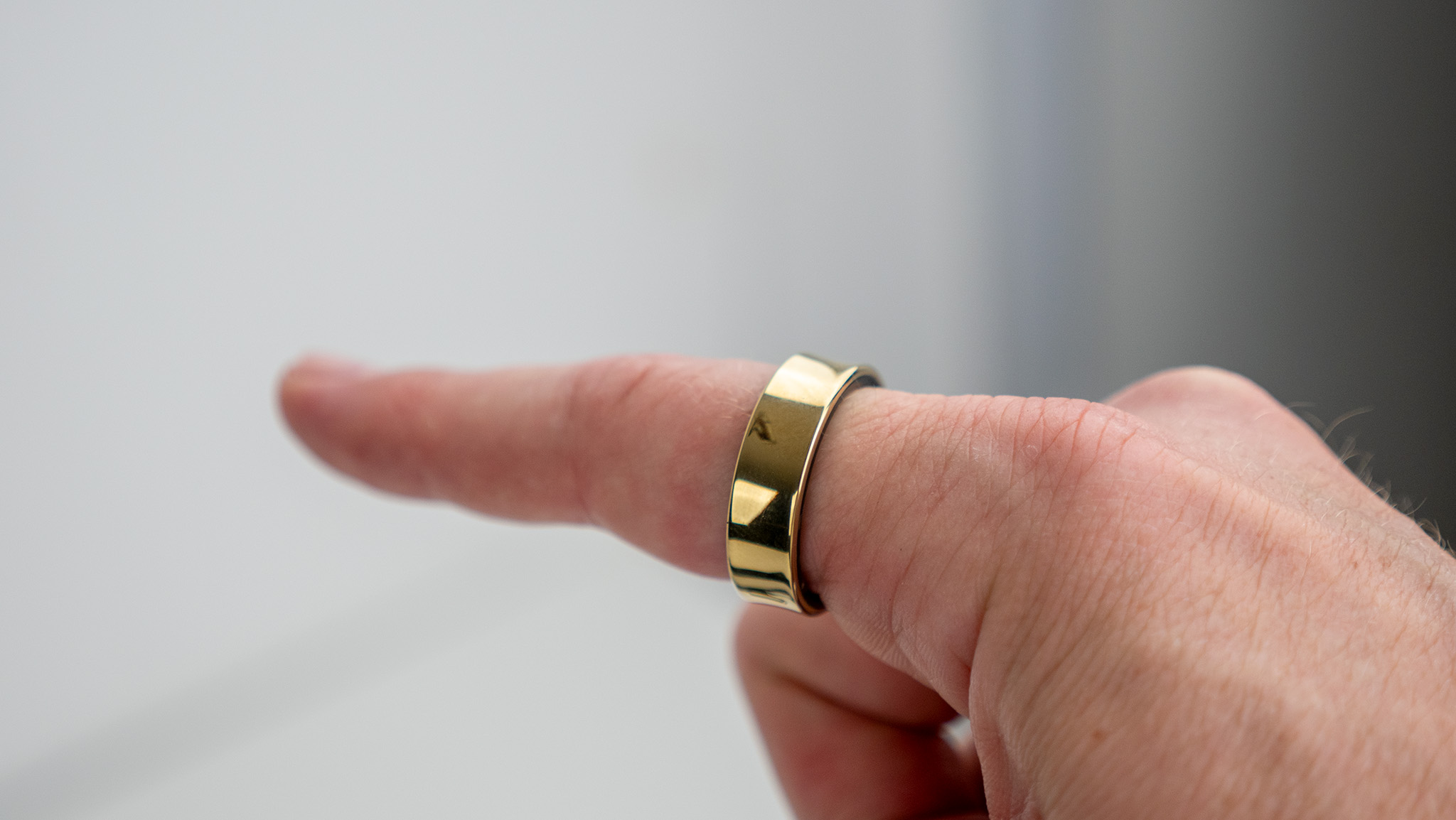
There's only so much you can do with the design of a smart ring, and as a result both the Galaxy Ring and Ultrahuman's Ring Air end up looking largely identical. The Galaxy Ring is made out of titanium and is available in a multitude of colors, and it is light enough that you don't notice it. While Samsung says it uses a scratch-resistant coating, that hasn't been the case on my colleague Nick Sutrich's unit, which picked up visible scratches in just a week of use.
The Ring Air is also made out of titanium, and it has matte and glossy colors that contrast the design well. it is a smidgen lighter than the Galaxy Ring, and it is extremely comfortable in daily use; I barely even notice that I'm wearing a smart ring these days. It has its share of scratches as well, so I'd recommend getting a lighter color.
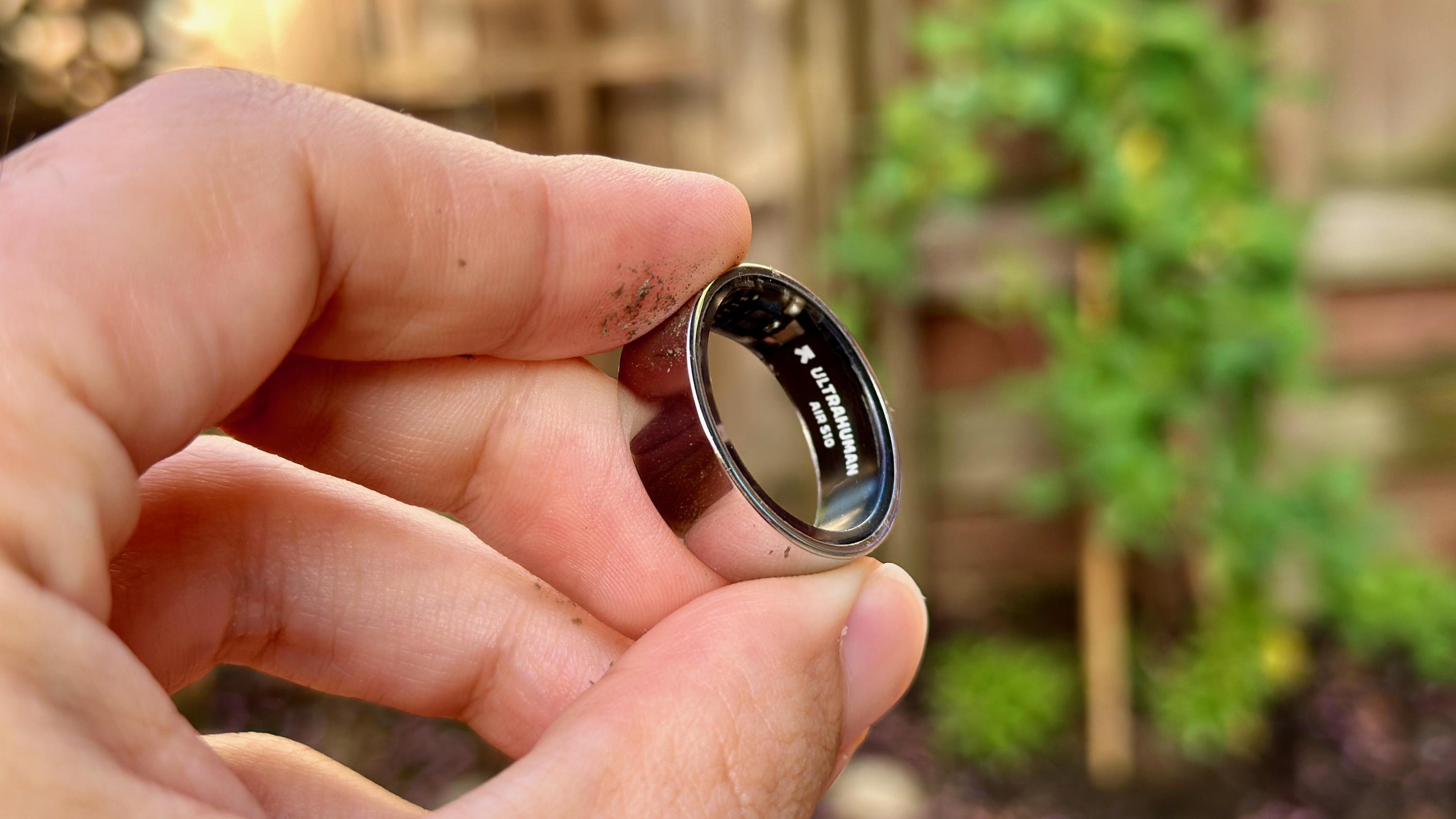
Both rings have a similar set of sensors, and they're recommended to be used on your index or middle fingers. Samsung and Ultrahuman send out sizing kits so you can accurately determine your ring size, and as both brands use custom sizing, it's recommend you try out the designs in the sizing kit to gauge the fit.
Both smart rings have ridges on the underside where the sensors come into contact with your finger, and while I thought it would be uncomfortable, that hasn't been the case at all. The only difference to a regular ring is that smart rings are noticeably bigger, but they're lighter than they look, and at least with the Ring Air, there wasn't any issue with the design or fit.
Samsung Galaxy Ring vs. Ultrahuman Ring Air: Health and activity tracking
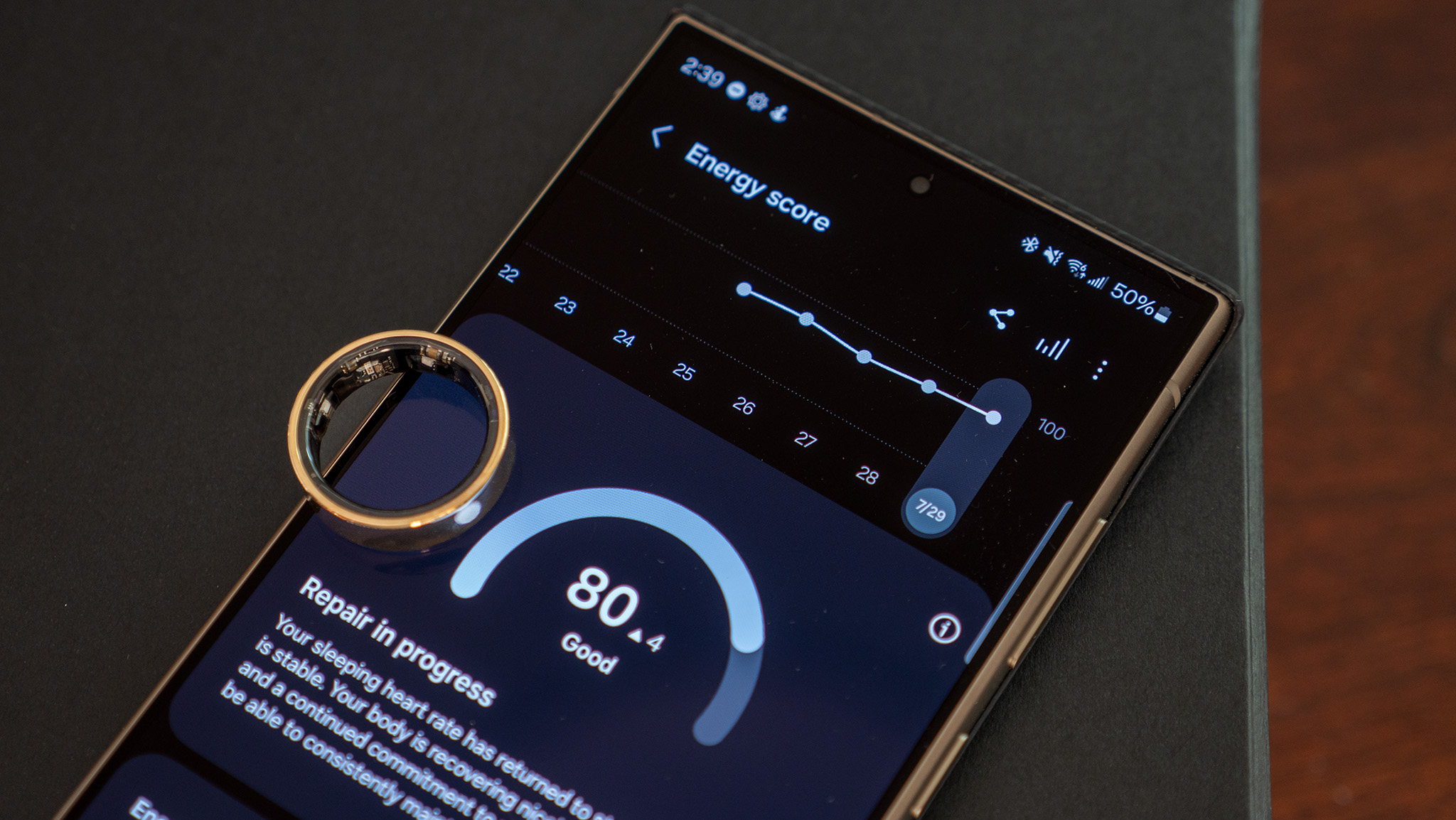
Smart rings offer a significantly easier way to monitor fitness and health data, and while they don't have an extensive feature-set like the best smartwatches, they're great at the basics. Both rings measure 24/7 heart rate, heart rate variability, and skin temperature, and they monitor stress levels throughout the day.
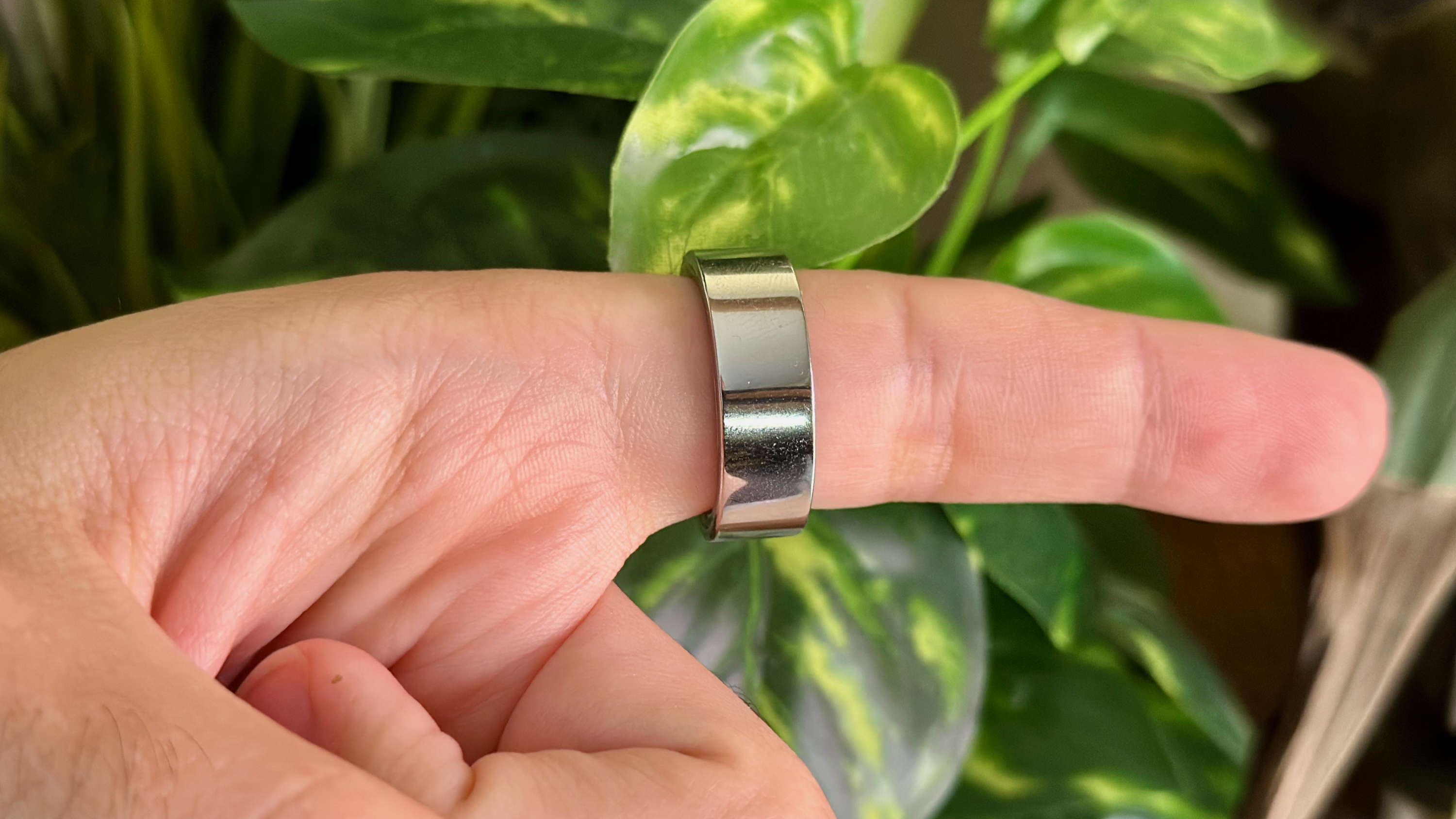
When it comes to activity monitoring, the Ring Air has been inconsistent in my usage, and the data isn't as reliable as a regular smartwatch. That said, subsequent updates have made a difference, and the key point is that it does a better job than the Galaxy Ring.
The Ring Air didn't have automatic workout detection, and it was a point of contention when I started using the smart ring earlier in the year. Thankfully, Ultrahuman added the feature via a software update, and while it is buggy at times, it is a great new addition. So even if you don't manually start an activity before working out, it will start tracking your activity levels and vitals, and give you a notification within the app to log the activity.
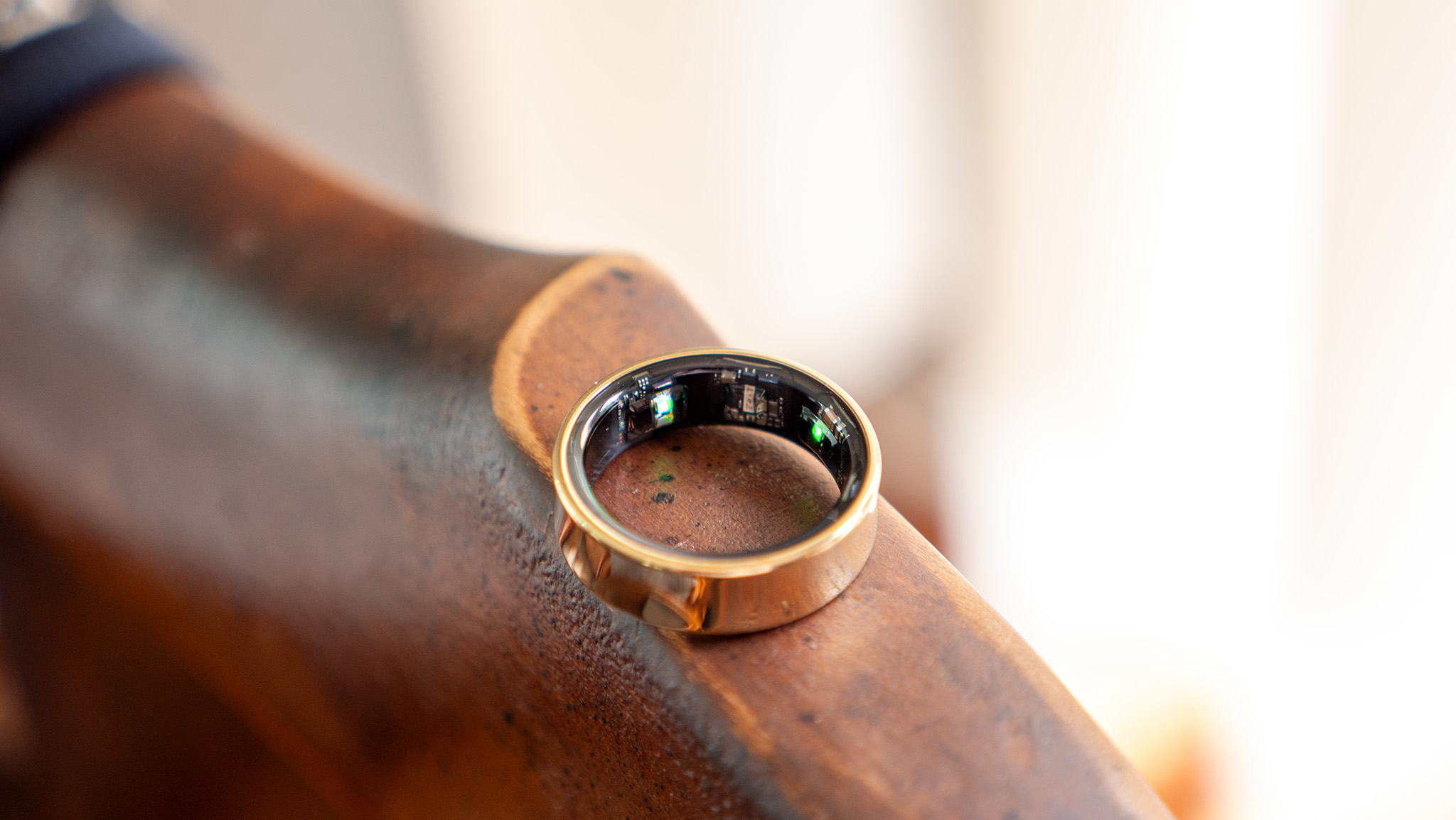
The Galaxy Ring also has this feature, but it only does so with two activities: running and walking. That limits its ability to measure workouts on its own, and the Ring Air has the edge in this regard. Another area where the smart ring outshines Samsung is sleep monitoring; I got useful metrics out of the Ring Air, but the Galaxy Ring still has a long way to do in this area — it just doesn't provide reliable details.
Samsung Galaxy Ring vs. Ultrahuman Ring Air: Battery and connectivity
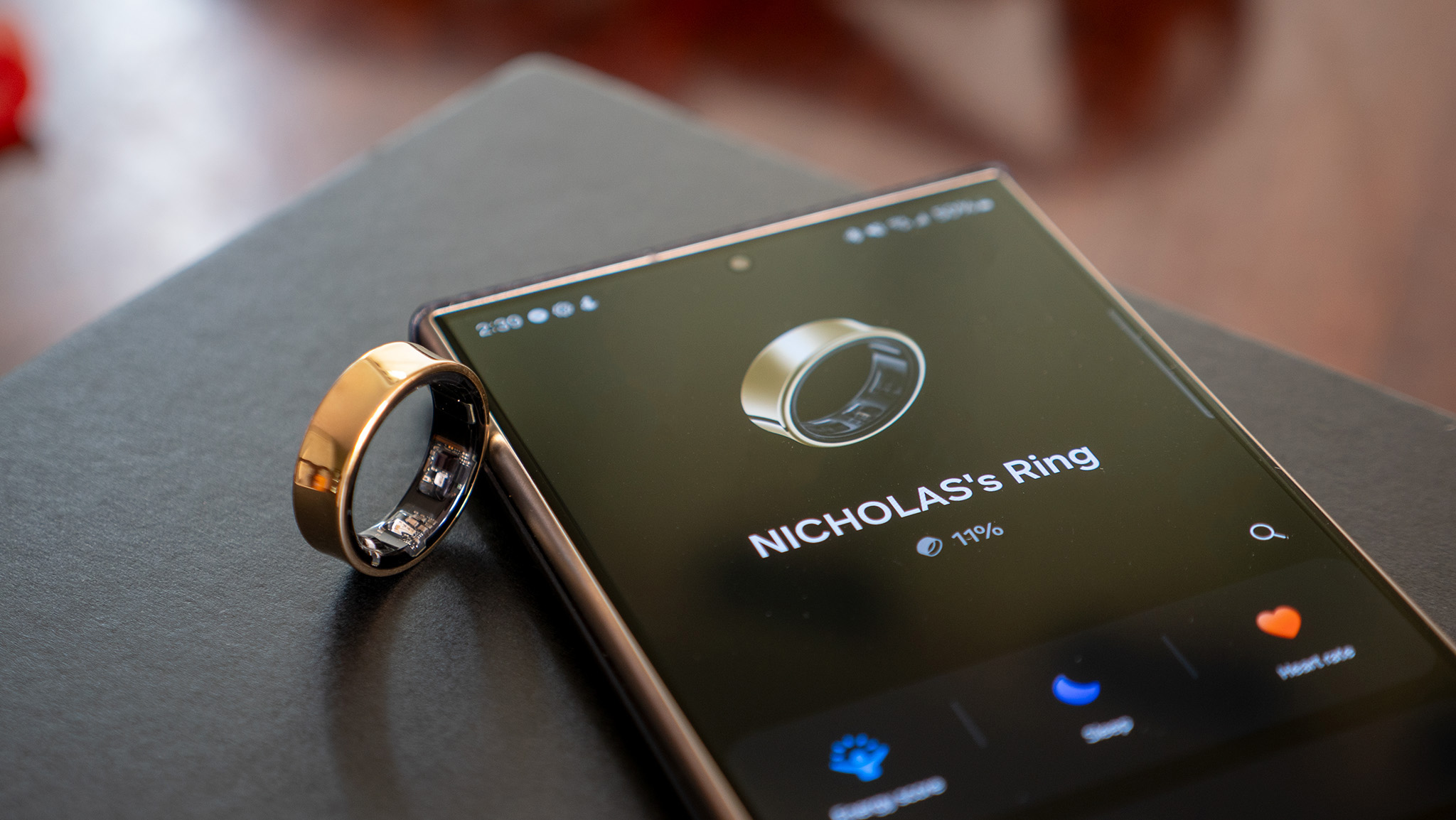
Both smart rings connect via Bluetooth, and they have decent battery life. I got four days of usage out of the Ring Air between charges, and while that's good enough in its own right, the Galaxy Ring does better. Samsung's smart ring manages to last a day longer than the Ring Air, so that should give you at least five days of usage. Samsung's charging dock looks pretty cool too, and although the Galaxy Ring has a smaller battery, it has better longevity.
Where the Ring Air has a distinct advantage is connectivity; it doesn't lock any features to a platform, and you get the same feature-set on all Android phones and iPhones. You don't need to pay any monthly fees to use all the features, although Ultrahuman is rolling out custom additions that cost extra — they're not necessary if you just want a smart ring to monitor activity and health data.
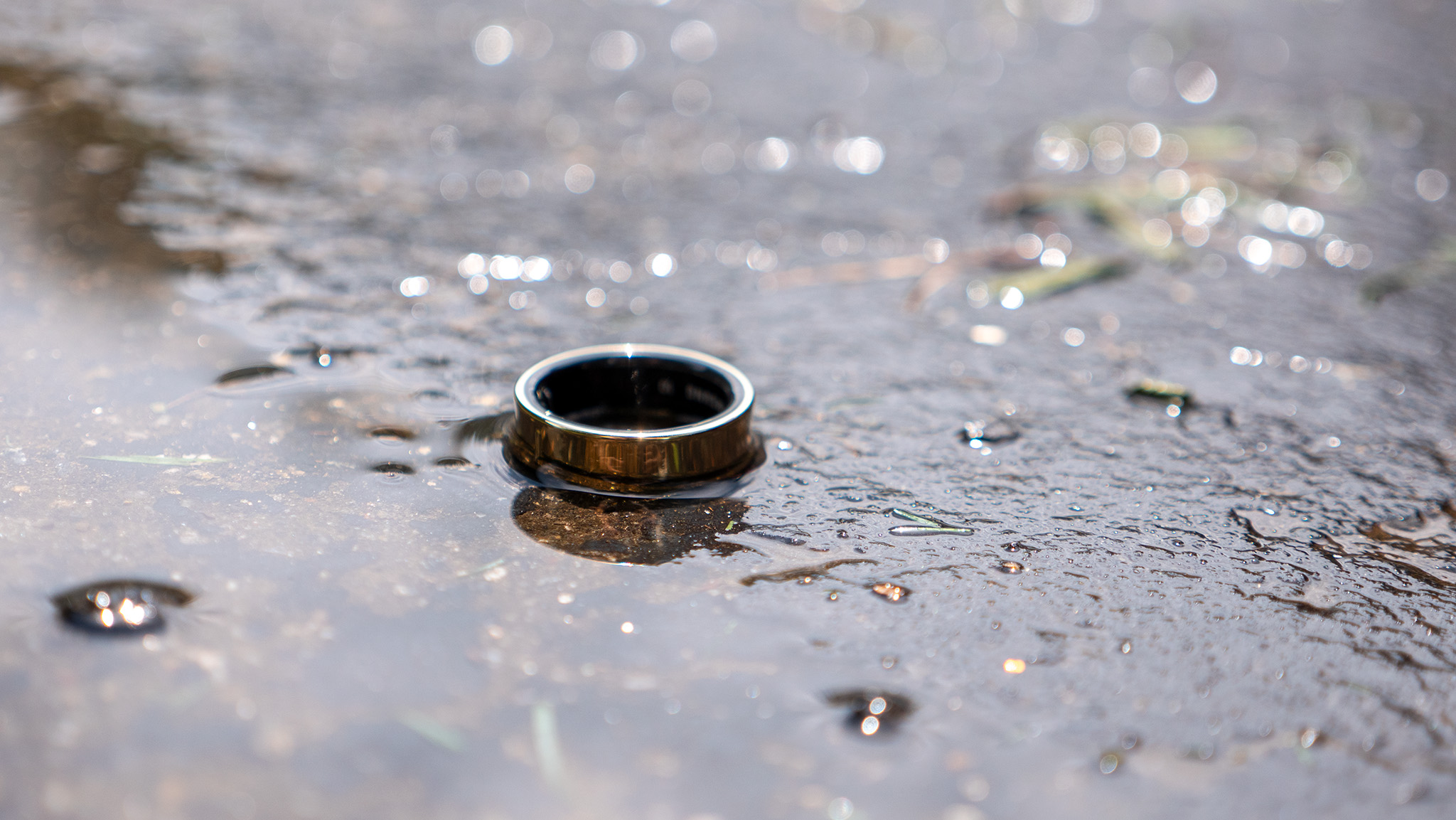
Annoyingly, Samsung restricts the usability of the Galaxy Ring in several ways; find my device is exclusive to Galaxy phones, so if you use another Android device, you can't use the feature to locate your Galaxy Ring. There's no way to use the smart ring with an iPhone — unlike the Ring Air — and the most egregious feature limitation is gestures; the Galaxy Ring has a few gestures to control your phone, but you need a Samsung phone.
Samsung Galaxy Ring vs. Ultrahuman Ring Air: Which should you buy?
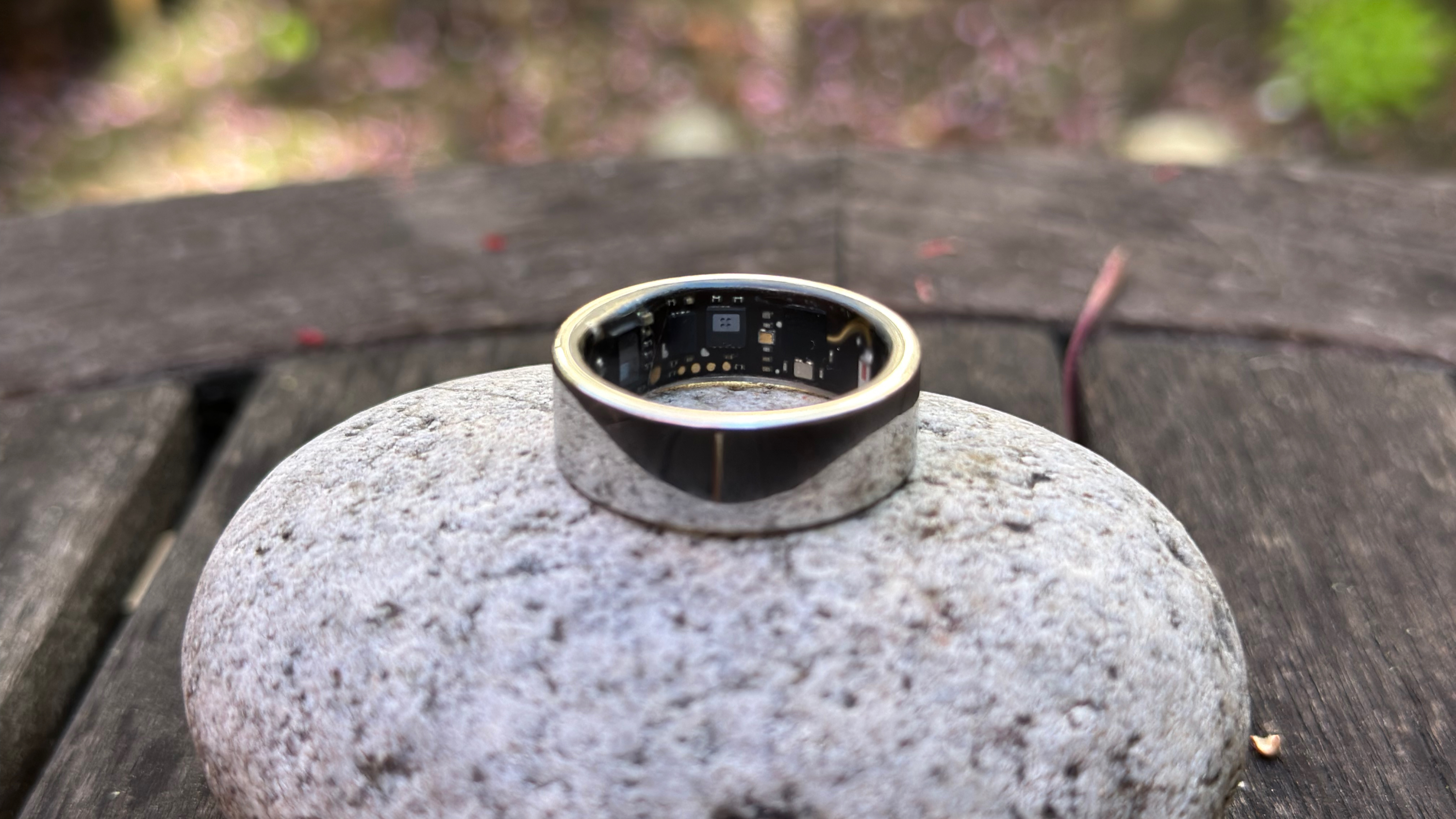
If you have a Samsung phone and want a smart ring to go with the device, the Galaxy Ring should be a decent choice. It isn't available in all regions just yet, and it costs more than its rivals, and it just doesn't have the same robust feature-set as the Ring Air. That's obviously going to change over the coming months as Samsung adds features to the smart ring, but if you need something that's fleshed-out now, the Galaxy Ring isn't it.
The Ring Air is a much better alternative. It has better automatic workout detection, has usable metrics that work on all platforms, and does a good job with sleep monitoring. It also costs less, and although the battery doesn't last as long as the Galaxy Ring, I consistently got four days of use between charges, and that's decent enough. If I had to recommend a smart ring, it'd have to be the Ring Air.
A Galaxy on your finger
The Galaxy Ring is a good showing, but it doesn't have the same set of features as of writing, and cool additions like gestures are locked to Samsung phones. It clearly has potential, but it may not be until the second-gen model that it measures up to its rivals.
Everything you need
The Ring Air is a terrific smart ring, and it gives you actionable metrics while being unobtrusive. It isn't quite as good as a smartwatch, but if you just need the basics, it is the smart ring to buy right now.







